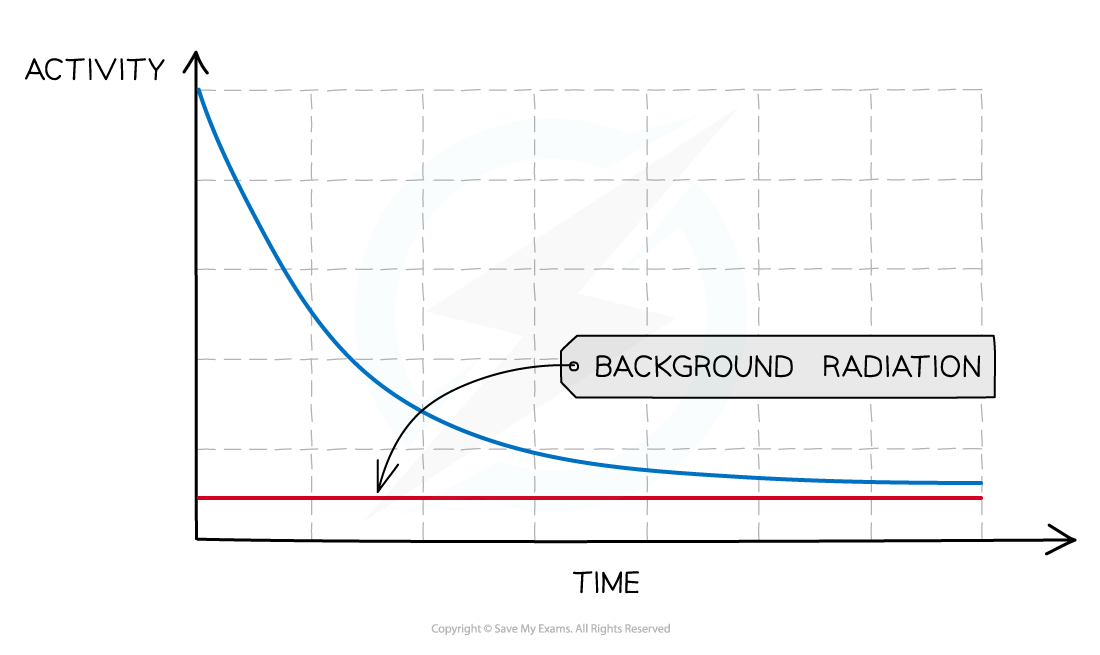Activity & Decay (Edexcel GCSE Combined Science): Revision Note
Exam code: 1SC0
Activity & Decay
Objects containing radioactive nuclei are called sources of radiation
Sources of radiation decay at different rates which are defined by their activity
The activity is defined as
The rate at which the unstable nuclei from a source of radiation decays
Activity is measured in Becquerels
The symbol for Becquerels is Bq
1 Becquerel is equal to 1 nucleus in the source decaying in 1 second
As an isotope decays, the number of nuclei of that isotope that remain will decrease
As a consequence of this, the activity of that isotope will also decrease over time
This can be shown on a graph of activity against time for a decaying source:

Activity decreasing with time for a radioactive isotope
Worked Example
A source of radiation has an activity of 2000 Bq. How many unstable atoms decay in 2 minutes?
Answer:
Step 1: Determine the activity
The activity of the source is 2000 Bq
This means 2000 nuclei decay every second
Step 2: Determine the time period in seconds
The time period is 2 minutes
Each minute has 60 seconds
The time period in seconds is:
2 × 60 = 120 seconds
Step 3: Multiply the activity by the time period
Activity (Bq) × Time period (s) = 2000 × 120 = 240 000
Therefore, 240 000 unstable nuclei decay in 2 minutes
Examiner Tips and Tricks
Do not confuse activity and count rate. Activity is the rate at which unstable nuclei decay, whereas count rate is the rate at which radioactive emissions are detected. Count rate has the units counts per second

Unlock more, it's free!
Did this page help you?